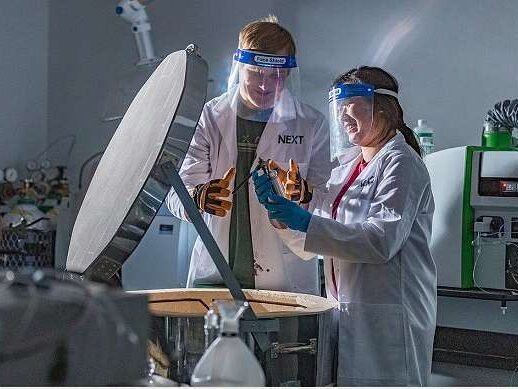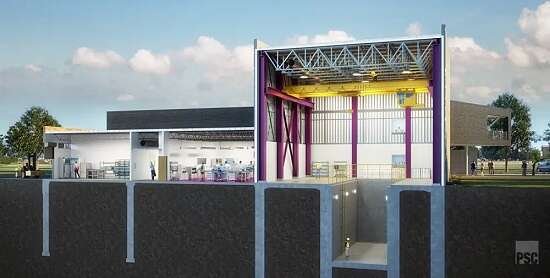Abilene Christian University, Georgia Institute of Technology, Texas A&M University and The University of Texas at Austin have formed NEXTRA – the NEXT Research Alliance. NEXT, which stands for Nuclear Energy eXperimental Testing Laboratory, is experimenting with using molten salts, rather than water, as a coolant for nuclear reactors with the goal of designing and building the first university-based molten salt research reactor. These universities have research reactors and established engineering programs, including nuclear engineering, as well as doctoral and post-doc researchers.

Abilene Christian University Department of Engineering and Physics, now led by Professor Rusty Towell, has nearly four decades of experience in national laboratories such as Brookhaven, Fermi and Los Alamos, where ACU undergraduate students have the rare opportunity to work alongside their professors and other physicists from around the world. Some of the top groundbreaking discoveries in physics in recent years were made possible by important contributions to testing and research by ACU faculty, undergrads and alumni.
The school has built a $23 million facility to house the reactor and expects approval to start work on it in May 2024. Building that should take about 18 months, and then the school will apply for approval to operate it. The team hopes to fire up the first reactor in late 2025 or
early 2026.
The underlying technology was already proven to work. American scientists built such
a reactor at the Oak Ridge National Laboratory in Tennessee and operated it successfully from January 1965 to December 1969. These advanced nuclear reactors (referred to as Generation IV) are safer and more efficient than the current generation of nuclear reactors. The technology NEXT Lab has been developing for several years will use salt that is heated and melted into a liquid phase (molten salt) and not water as the coolant. Unlike water, molten salt does not become a gas until it reaches over 1400° C, so the reactor core does not have to be built to operate at high pressures. This avoids both the cost and danger associated with a pressurized water reactor.
ACU has contracted Teledyne Brown Engineering to perform front-end engineering and design work to produce the first university-based molten salt research reactor (MSRR). The reactor is scheduled to begin operations in 2026. Details here.
Doug Robison, a third-generation oil and gas man whose children attend Abilene Christian, is the lead donor to the project, and is confident enough that he’s put more money into the project as an investor. He has founded a company, Natura Resources, and is funding the research in exchange for an agreement that gives him the option to license future discoveries for profit. The Natura Resources website has a slideshow of the construction of the research facility at ACU. Zachry Nuclear Engineering has been selected to design the Natura Resources Molten Salt Reactor (MSR) that will be deployed on ACU’s campus.
There is a 28-min video featuring Doug Robison where he provides some details about the NEXT Lab project at ACU and covers a wealth of history and technical details regarding nuclear power. An excellent overview of various issues regarding nuclear power.
Although the Nuclear Regulatory Commission (NRC) has not yet licensed an advanced molten salt test reactor, there are 31 nuclear research testing facilities across the U.S. Three are in Texas, including one in Austin at The University of Texas’ Pickle Research Park, built in the 1980s. Massachusetts Institute of Technology has one on campus in the heart of Greater Boston.
Links to more detailed information
- NRC Map of Research and Test Reactor Sites
- FAQs Regarding NEXT
- ACU NEXT Lab receives grant approval from Department of Energy
- CT article by Adam Macinnis (2023) - Good background on the project at ACU
- The Natura Resources website - See the SERC being built
- Another Natura Resources Partnership - Natura Resources, LLC has joined the Texas Produced Water Consortium (TXPWC) to evaluate the deployment of Natura’s liquid-fueled molten salt reactor (LF-MSR) technology to meet energy and water needs in the Permian Basin in a partnership dubbed Fortifying the Future.
- Search Results at ACU Website

